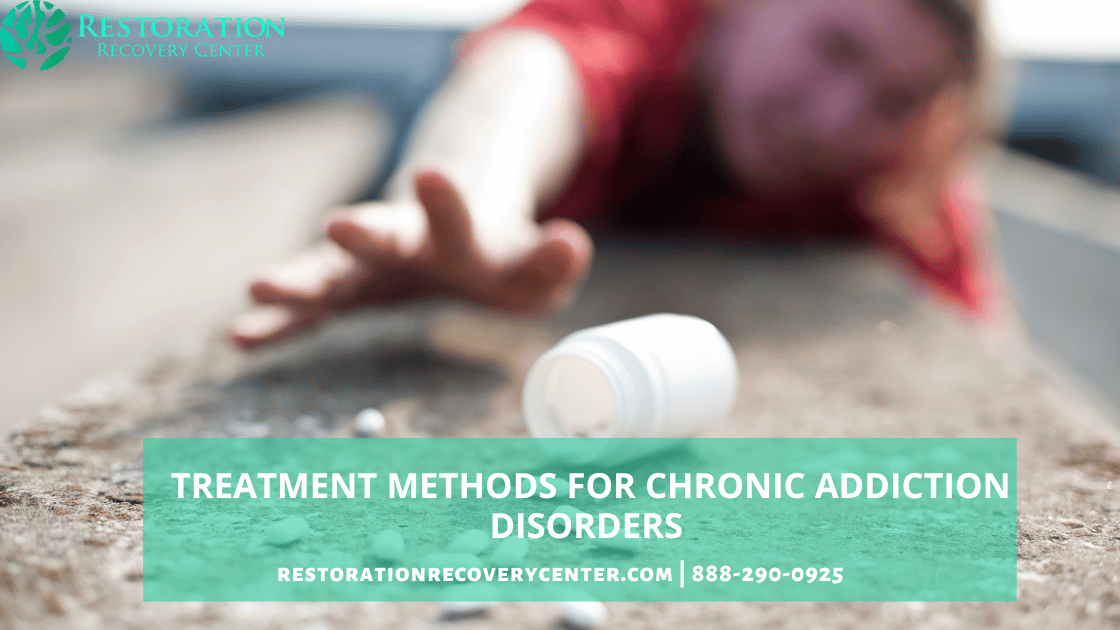Treatment methods for chronic addiction disorders
Addiction to drugs and substances is a chronic disorder characterized by compulsive drug-seeking or use despite consequences such as alteration of the brain functions. These changes are usually long-lasting, and if not treated in good time, they can cause irreversible damage to the patient.
Drug and substance addiction is also a disease that is at high risk of relapse. To prevent all this, it is vital for a patient to seek out the services of professionals at addiction rescue facilities.
In this post, we are going to look at modern methods of treatment for chronic addiction disorders.
The matrix model
This is a treatment used in severe addiction to substances, which presents the patients with a framework from where they can maintain abstinence. This method is mainly used for cocaine or meth addiction patients, but can still be used for other patients who are severely addicted to alcohol and other hard drugs.
Treatment using this method basically involves evidence-based rehabilitation, to enhance the prevention of relapse and encourages some extent of family therapy. The patients are provided with manuals and worksheets during the therapy sessions, which they use for reference in every stage of the treatment.
EMD
Eye movement desensitization therapy aims at eliminating distress that is associated with trauma or previous traumatic encounters. They also eliminate traumatic memories that might be leading to substance dependency.
The patients are taken through a process of reprocessing the traumatic encounter so that they can identify how to cope with it and accept that it is in the past so that the memories are less painful. The treatment procedure involves some externally induced eye movement as the patient is asked about the traumatic experience. The brain is then set to a position where it associates the memory with a less painful feeling.
Each session takes around 90 minutes, but there are patients who might require a little more time, depending on the severity of their trauma.
Motivational therapy
Motivational therapy basically entails a form of a motivational interview on a few topics on substance abuse. It is aimed at eliminating a patient’s doubts regarding the need to attend therapy sessions or the necessity of being confined in a substance abuse treatment facility.
This therapy is a method of treatment used for chronic addiction disorders to encourage behavioral change instead of trying to teach the patient how to change. The treatment begins with a single assessment session, which is followed by multiple counseling sessions. The doctor can start with a few motivational statements which are aimed at enticing the patient’s self-motivation. The patient will then be encouraged to look for their own comfortable styles of coping with stressful situations to avoid relapse.
Contingency management
This method also uses a motivational incentive approach to help encourage positive behavior, but this time, with a tangible reward. This therapy augments the other three forms of therapy to promote total abstinence during the treatment period.
The therapists incorporate gifts and vouchers to award patients who have adhered to total abstinence as a way to encourage the rest of the patients to follow suit. Some experts are, however, concerned that incorporating prizes and awards as a treatment method may instead encourage gambling behaviors in the patients.
Decades of research done on treatment methods for chronic addiction disorders show that behavioral and motivational therapies are the most effective methods for treating severe addiction.
This is the reason why the drug rehab center, Auburn, CA, features various complementary treatment methods for severe addiction patients. Since Addiction is a chronic disease, patients cannot abruptly stop the abuse of substances.
Visit the California substance abuse treatment facility today to get long term and repeated care that will help you totally recover your life.






